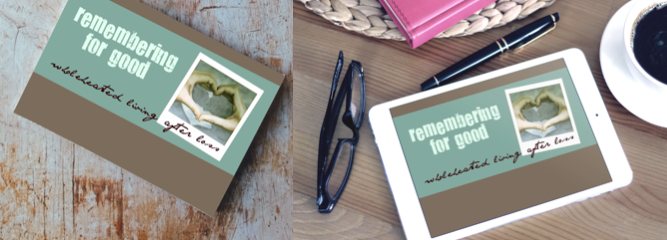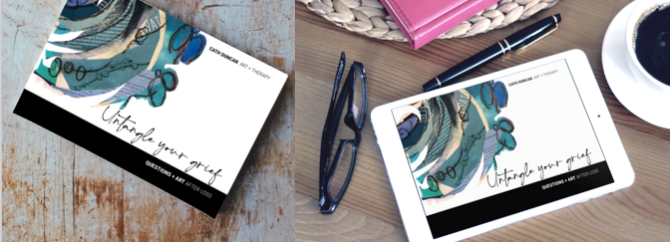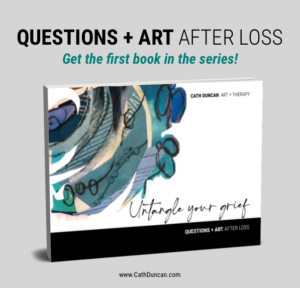I’ve had a few emails recently from people who are struggling with the social repercussions of tragedy and loss. They’re shocked to find that, on top of the pain of the child or parent or spouse they lost, their whole social world has been turned upside down. People that they used to feel close to suddenly seem so far away and disconnected. They’re struggling to feel understood. They feel judged for their loss, or for their reactions to loss and the way they’ve chosen to express or live their grief. They don’t identify with the people they used to identify with, they feel incredibly vulnerable and angry and raw, and they’re walking on egg-shells in a few significant relationships. They want to be able to talk about their loss and grief but they’re worried about other people’s reactions if they do and they don’t want people to “treat them differently” because of what happened. Ultimately, they’re feeling very alone, ashamed, conflicted, and often very angry towards others, in their grieving.
Sound familiar?
I know that, even with the mostly compassionate community that we were fortunate to have around us when Juggernaut passed away, we were surprised by the way that our losing Juggernaut rocked our social world and gave us a lot of social conflict to wade through.
Stepping back to see the web of grief
Have you noticed how we talk about loss and grieving as though we’re all islands and as though relationships are one-dimensional connections, so that when one person dies, there’s typically a “primary griever” or perhaps two of them, and everyone else is only affected or involved to the extent that they choose to support the primary griever. This is a gross over-simplification and misrepresentation of reality. When someone dies, there’s a whole web of people who had different kinds of relationships with that person, who are affected in different ways, and the ripple through our “tribes” is more widespread than we usually recognize. Even people who didn’t have a direct relationship with the person who died are affected – either because they feel for and with the people who had a close relationship with the person who died, or because at the end of the day, the tragedy and permanence of death shocks and often scares us all.
This “individualisation” of loss and grief doesn’t happen everywhere. Traditional African societies and many eastern societies focus more on the collective, and what’s interesting is that the research shows that societies that have more community-based grieving rituals tend to have fewer somatic ailments in the first year after a loss.
When we don’t recognize the social web of grief around us:
When we act like grieving is an individual and personal practice rather than a community experience:
- we run the risk of pathologizing and alienating the primary griever, who feels alone, misunderstood and often ashamed because they think they’re the only one feeling the pain of the loss. The research shows undisputedly that people who grieve within a context of social support fare much better and are much less likely to develop problem behaviours than people who grieve alone.
- we run the risk of alienating or shaming people within the broader social web who don’t feel that their grief is “justified” and don’t feel they have permission to grieve.
- we create “hierarchies of loss” where we compare and judge our losses, and give certain people permission to grieve while we minimize or ignore the grief of others. Hierarchies of loss provide subjective and artificial rules that restrict our natural, healthy grieving and erode intimacy and community.
- we disconnect from each other. We feel alone and this makes the grief journey exponentially harder.
- we disconnect from our shared community resilience and resourcefulness because we stop sharing experiences, problems, wisdom and solutions. This makes the entire community less resilient.
- we have more loss to grieve as we lose relationships with people we love , and the grieving and disconnection becomes a vicious cycle.
If you recognise this web of grief, with all the different interconnections between all of the people who are experiencing and grieving the loss in different ways, then it’s often easier to understand why your family dynamics and social world seem upside down, to start to become aware of how other people have been affected by the loss from the group, to allow for different ways of grieving and to not take it personally if you don’t get the sort of response you might have wanted from others in your circles.
As our world gets shaken up by grief, all of our relationships get a shake up, and this has an impact on everyone involved in the various relationships. Everyone has to drop their old, automatic relationship pattern and each person is challenged to re-negotiate and re-invent the relationship. There’s enormous opportunity in the breaking of all of the old patterns, because some relationships will come out with a new, stronger, more real and intimate connection. But others will struggle with the adaptation and some will not be able to adapt much at all.
Adapting relationships: some tips
Staying in community while we’re grieving is good for all of us. But it’s hard! It takes a lot of adaptability and willingness to learn from everyone involved. Every relationship is different, but here are some tips to help you think about your relationships in general so that you can stay connected and even deepen your sense of community after loss:
1. Trust and let go of some relationships.
Loss often re-arranges our priorities significantly. Some people report that loss broke their social masks and brought them back to who they were really meant to be. They come to realize that they no longer have shared values with some of their social circle that was developed while they were wearing social masks.
Some of those relationships will be flexible enough to adapt to the new you and some will want you to go back to being the old you. Loss and grief has a way of breaking illusions and stripping us down to our core essence. This is an opportunity to let that greater truth into your social world. Sometimes the truth is that that relationship was never very real before, or that the you in that relationship before was not your authentic self. It can be really liberating to trust and let go.
2.Realize that you co-own your relationships.
Try to think of your relationships as having 3 elements: you, the person you’re relating to, and a third element: the actual relationship. You’re not responsible for maintaining or improving your relationships alone. It’s a shared job. Make your contribution to communicating and nurturing the relationship, but allow space for the other person to make their contribution and nurture the relationship too. Or to not nurture the relationship. Either way, realize that you don’t have full control over the relationship and that healthy, enriching relationships are always a shared responsibility. If you try to control the relationship, you will turn it into an unhealthy one.
3. Break the ice.
Most people will probably want to support you but feel very anxious and disempowered about doing so. They can’t fix what’s broken, they don’t know what to say or do, and they worry that they’ll only upset you more. So they back away from you. They know that some days you might want to talk about your grief and other days you might prefer not to, so they’re looking to follow your lead – especially right in the beginning. Sometimes this is too hard to do, or you’re still in shock and just don’t have the presence of mind to do it, but if you take responsibility for breaking the ice and setting the tone that you want in your conversations and relationships after your loss, you’ll find it easier to navigate your relationships afterwards.
We chose to break the ice and share our experience of losing Juggernaut right away because we wanted to set the tone that she would be a part of our lives and welcome in our conversations. We’ve stated clearly to our friends and family, “We want to talk about this. It hurts more if we don’t. Your questions or comments about her don’t remind us of her – we’re thinking about her a lot anyway, and it’s a welcome relief when you meet us there.”
It’s never too late to open the communication about your loss and grief, but the sooner you open it, the easier it is to navigate your social world and for your relationships to adapt and integrate your experience after loss.
4. Understand that a lot of people don’t share about their vulnerabilities.
Usually when someone who has been close to you doesn’t offer compassion after your loss, it’s because their vision and behaviour is being limited by their own past or present stress and pain, and right now they just can’t see or bear your vulnerability because it triggers theirs. If you’re thinking of someone right now who’s not offered you compassion and saying, “But they haven’t got any stress or problems in their life…” remember that many people don’t talk about their pain and challenges very openly. There could easily be something they’re struggling with that they’ve felt too ashamed to tell anyone about, or something in their past that you don’t know about which they still carry.
5. Remind yourself who you were before your loss.
Now that I’ve experienced a significant loss, I look back on how I responded to losses that other people in my life had suffered. When I reflect back, there are interactions I’m not proud of. Grief is not something you can understand until you’ve had the experience of significant loss in your own life. It’s an alternative universe. Some people who haven’t experienced major loss have enough imagination or training to relate to you on your new planet and some people just don’t have the imaginative abilities or skills to offer compassion and empathy. I often forget this, but it helps to remind myself that whether someone can imagine what my life is like now and meet me there has little to do with how much they love me – it’s a thinking skill. Some people have developed that particular thinking skill, and other people haven’t really.
6. Appreciate the relationships that are better than before.
When we’re stressed (and loss definitely activates the stress response!), our cognitive thinking changes and we’re wired to focus more on threats and risks than things that are going well. It can be easy to not consciously notice the relationships that are stronger, more real and more intimate since your loss and only focus on the relationships that are feeling very hard. Some people will really step up and be there for you, showing you a side to them and building a new pattern in your relationship that you never saw before. Noticing and appreciating these relationships can help to balance any sense of tension or loss in any other relationships and help you to remember that you’re not alone.
7. Welcome the new friends.
Loss and grief can often be something powerful that pulls people with similar stories together, accelerates bonding and provides you with a whole new world of friends. These days there are so many ways that you can connect with other people who’ve had similar experiences through Facebook, online forums and support groups. I’ve found some wonderful friends like Kellie Walker, Lianne Raymond, Heather Plett, Kara Jones, Dana Boyle and many others because of our shared stories. My life is so much richer for it!
8. Focus on the long game.
When we’re stressed or distressed, our thinking becomes more reactionary, impulsive and impatient – and of course this is happening for the whole grieving social web to varying degrees. This can make interactions very intense and tricky! You may feel the temptation to make a big relationship decision or to cut someone off in reaction to just one conversation. You may feel so desperate to resolve the conflict and disconnection that you want to do it with one conversation and you agonize over the perfect words to say that would fix it all.
Relationships are never about one conversation. Healthy, sustainable relationships are ongoing conversations. Release the need to resolve it all or to cut off relationships. Commit to staying in the conversation in spite of the unresolved tension. Hold off on judging the relationship as “good” or “bad” and instead let the conversation evolve in little steps of truth-telling.
What other tips do you have for managing the social repercussions of loss and grief?
Would you like guidance to explore and heal your grief?
I’ve put together a 35-page grief “workbook” for you; an introduction to Remembering For Good and living wholeheartedly after loss. Learn more about the Remembering For Good grief workbook.
The first book in the QUESTIONS + ART AFTER LOSS series, Untangle Your Grief is a beautiful 65-page book of artful questions and creativity-sparking art prompts to help you to create meaning, belonging, and hope after loss.




When my 18 year old son was killed in Feb. I found great solace in reading his facebook page which all his friends were writing on and reminded me that I was not the only one that lost him.
@bethdargis A few friends and friends of friends have passed away in the past few years and Facebook has provided a wonderful platform for grieving and remembering in community. I love that technology means that we leave more of a trail that “lives on” after our biological death and offers opportunities for ongoing remembering and staying connected. Big love to you and your family and your son’s friends as you’re grieving and remembering together. Thank you for commenting.
My intended fiance was killed by a drunk driver in August 2011. I’m glad I found this article because the HARDEST part of this devastating experience is feeling unsupported by people I thought would be there. And while it helps a little to know this isn’t uncommon, it actually breaks my heart more as I wouldn’t want others in mourning to have this pain on top of the devastation of someone’s death, too.
I had so many apparently misplaced hopes/assumptions of people I really thought would be helpful that haven’t been at all – even my family, and one of my ‘best friends’, one that used to always be the one I could truly open up to on deep emotional levels; a casual girlfriend who lost her husband a few years ago but has moved on to another relationship that I thought would totally understand, a high school best friend who is a Hospice counselor, too, that I keep in touch with that went 6 months before contacting me again after this loss . . . these folks I didn’t doubt I could lean on haven’t really been there much or at all. I’ve never been though anything like this so didn’t know what to expect but this wasn’t it.
Feeling unsupported and left to deal with this on my own (in large part) has been so awful, on top of, of course the normal grieving of my beloved and the life we had planned together which I’d waited SO long to find (honestly, the “easiest” part is the natural grieving of him, as I KNOW he loves and supports me & I feel him around me still . . . ) . . . truly, I know I probably sound bitter and blaming (and, I guess I am as much as I hate to admit that!) but the people left here that supposedly love me have made this experience so much harder than I ever imagined. Or maybe it’s my hopes & expectations that have made it so . . . Ugh, I’m sorry I’m venting here like this but I can’t say this to anyone for fear of making them feel bad that THEY may not have been supportive enough, either . . . and the additional pain is almost more than I can take, and being expected to be the understanding one and compassionate of THEIR limitations just feels like salt in the gaping wounds . . . mostly, I think I just needed to vent so thank you for listening.
I’m coming around more, believe it or not, to accepting what is, letting relationships change as your article talks about, and yes, all along trying to really appreciate the people that *have* shown up in whatever ways they can . . .and then feeling guilty about feeling that hasn’t been enough. I know, I should go see a Hospice counselor. I’m just not sure I can handle one more person telling me to understand the other people and move forward, which is what I anticipate . . .I just need someone to ‘get’ just how hard this is for *me*, whether that’s selfish of me or not.